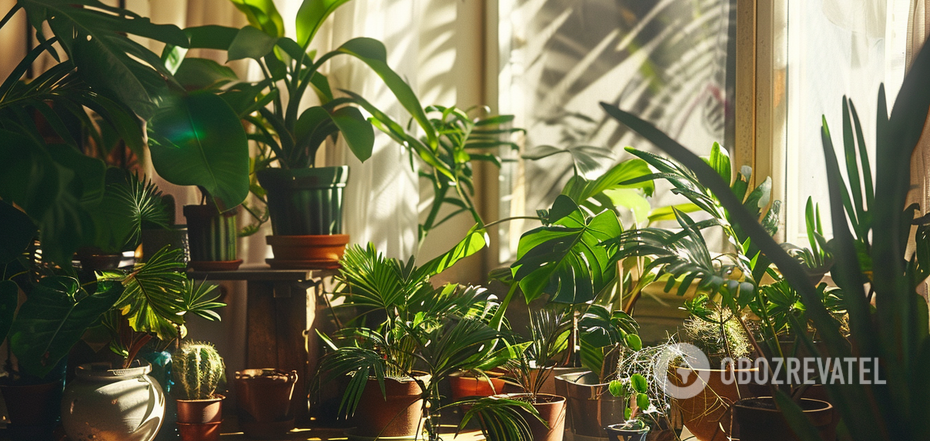Lifestyle
To accelerate growth: how to properly dust indoor plants
Access to fresh air is no less important for plants than water or sunlight - without it, photosynthesis is impossible. And for this process to be complete, the leaves need to be clean and able to consume carbon dioxide from the air unlimitedly.
In nature, winds and rains are responsible for cleaning the greenery, but indoors, the indoor garden will have to provide the appropriate care on its own. OBOZ.UA tells you how to do it right. As a result, your greenery will not only look great, but will also grow faster and be more lush.
How the plant breathes
Stomata, through which gas exchange and moisture evaporation take place, are located over the entire surface of the leaf - usually more in the lower part than in the upper. Through them, the plant absorbs carbon dioxide and releases purified oxygen. These holes are microscopic in size, so even a tiny dust particle can clog them very severely.
That is why it is important to clean the leaves of indoor plants from household dust. You can do this once a week, when you arrange care for the entire garden, or you can do it as needed - it depends on the dustiness of your home. Next, we will tell you what and how best to clean plants from dust.
Fluffy brush
You've definitely seen furniture cleaning brushes before. Their pile is soft and fluffy, and they are designed exclusively for gently sweeping dust from surfaces. Such a brush is also suitable for caring for plants. It will not scratch fragile leaves or break twigs. But keep this tool separate for plants. It will be better if it does not have even traces of household chemicals on it. For miniature plants, it's better to use a makeup brush rather than a brush.
A damp cloth
This care both cleanses the plant and provides it with additional moisture. For wiping, you need to take an exceptionally soft cloth that releases water well when twisted. Microfiber will do just fine. In particular, because it does not leave a lint behind.
Place your palm underneath the leaf to avoid breaking it off, and gently run the cloth from the base of the leaf to the tip. Do not rub the surface, one light touch will be enough. And be sure to make sure that the water used for such a wipe is not cold. Extreme temperatures can cause shock in plants and slow down their growth.
If you notice pests on your indoor plants, immediately wipe the plant by adding a little natural soap to the water. The product will help kill the pests without harming the leaves.
Shower
You can make it rain for your flower pots by putting them in a warm shower. But it's important to follow a few rules. First, turn on the water smoothly so that a strong stream does not damage the stems and leaves and does not wash the soil out of the pots. Secondly, after sprinkling, wait until the excess water drains through the drainage holes, and only then return the plants to their place.
A means for shine
Some owners want not only to clean their plants from dust, but also to add shine to them. Professional gardeners say that this should be done with extreme caution.
So you can find special leaf polishes on the market. It is not a good idea to use them. Such products contain oils that do make the surface of the leaf shinier, but they also clog the stomata and disrupt normal breathing. And the sticky film they create on the surface only attracts more dust.
Some bloggers also offer tips on how to care for leaves, which include the use of natural products such as beer or mayonnaise for polishing. Needless to say, this life hack is best ignored? For about the same reasons as leaf polish.
But what you can really treat plants with to make them shine is acidified water. Mix lemon juice and water in equal parts in a spray bottle and sprinkle your flowerpots with this mixture. The acid in the water will also dissolve lime residues that can settle on the leaves during watering and care. But don't forget to wipe the spray off the leaves. Long-term contact with acid, even a weak one, is not recommended.
White vinegar can also be used to make plants shine. Dilute it with water in a 1:1 ratio for spraying. You can even leave it on for a few minutes if you want to scare away pests from your indoor garden. However, eventually wipe it off.
Subscribe to OBOZ.UA's Telegram and Viber channels to keep up with the latest developments.



























